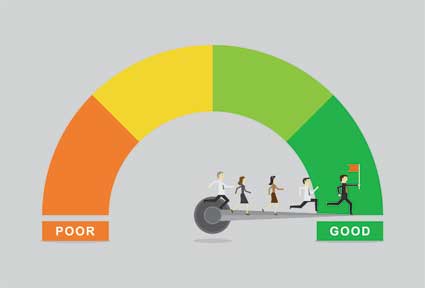Has anyone ever told you that you just do not listen? Do you find that people often repeat things to you several times before you seem to get what they are saying? Or what about those times you are listening to a speech or co-worker talk and meanwhile you are thinking about the errands you need to run once you leave the office?
Do not worry. You are not alone in this. Listening skills are exactly that: They are skills. Many people have difficulty when it comes to developing good listening skills. This often starts in childhood and then continues well into adulthood. But do not worry. You can improve your listening skills and become a good listener.
Listening skills are among those things in life that you can use to your advantage when you know more about them and how the concept works. Improving your listening skills is a sure-fire way to strengthen your personal relationships and help you in your career as well.
What Are Listening Skills?
To be an effective listener means that you not only listen or hear what is being said, you understand what you are listening to. Being able to understand what is being said provides you the opportunity to use that information to your benefit in all areas of your life.
Real listening is a process of hearing something, understanding what is being said, and then determining whether it makes sense to you.
Myths about Listening:
- Hearing and listening mean the same thing; so if you hear someone, you automatically are listening to them.
- Those who read well also are good listeners, so they do not need to practice to improve their listening habits.
- People who are smart are good listeners; it is automatic for them.
- As you get older, you become a better listener; only children do not have good listening skills.
- It is hard to improve listening skills, or listening may not be an area that needs to be focused on.
- Listening skills are over-rated in the fast-paced society we live in today; people just do not have time to focus on it.
Listening Skills in Business
When it comes to the business world, it is essential that you have good listening skills. If you do not, your customers will think you do not care about their business. Your boss may believe you are not able to handle tasks or are not an ideal candidate for a promotion. If you are sitting in on a meeting, conference, or go to a convention, your efforts could be wasted.
Why Listening Skills Matter
There are so many reasons that good listening skills matter and can enrich your life. Here are some examples of what good listeners can do:
- Answer or ask questions to engage in conversation and show support.
- Build better team relationships at work or school.
- Resolve any problems or issues that may arise.
- Gain a better understanding of what is involved in something that they are asked to do.
- Get more out of telephone conversations while, at the same time, the person on the other end believes someone is paying attention to what he or she is saying.
- Determine if there are underlying messages in what is being said.
- Gain a better understanding of themselves and how they interact with the world around them.
- Improve relationships, including those with family, friends, co-workers, etc.
- Have the ability to help advance their professional careers by being a more actively engaged employee.
- Reduce the number of mistakes, misinterpretations, and time wasted.
- Get more out of any schooling, as well as any speeches or conferences they may attend.
Seeing It Through
As you can see, there is a lot more that goes into listening than simply hearing someone. It is important that when you hear them, you also can interpret what they are saying and then actively engage in the exchange.
By doing this, you will be taking great strides to improve some important areas of your life, including those at home and work. Do not get worried just yet; once you gain an understanding of how to improve your listening skills, you will have no problems putting that into action and getting the most out of it.
What Kind of Listener Are You?
There is a good chance that you may not know what kind of listener you are. After all, until the topic arises, most people do not tend to think about the issue. So now is the time to think about it. There are different types of listeners out there, and learning about some of the different ways that people listen may help you use that information to improve your listening skills.
While some people are good listeners, others are often not so good because something else is going on at the same time, or there is a barrier. Some of the most common barriers to good listening include:
- not taking time to minimize external distractions;
- responding in a manner that is not expected, out of place, or inappropriate;
- interrupting someone who is speaking in order to speak;
- multitasking, or being engaged in other activity, as you are listening to someone else;
- being unable to offer feedback or a response when asked to do so;
- not paying attention to those unspoken things that are a part of body language;
- tuning out what you hear because you find it uninteresting;
- pretending to pay attention when you are really thinking about something completely different or daydreaming.
Childhood Experiences and Listening Skills
What do your childhood experiences have to do with listening skills? A lot! Believe it or not, most listening skills and styles get their roots in childhood. We are taught as youngsters how to listen to others, what good communication skills are, and how to express ourselves in a conversation. So the experiences you had in this area as a child are definitely a big influence on the type of listener you are today.
Children are often so busy being stimulated that they tune out what is being said around them. They are so over-stimulated today that they are not actively engaged in conversation with others. Many parents recognize that their child is not listening or responding; but rather than teach them ways to become better listeners, they simply state that they are not listening or demand that the child listen.
Having a poor attention span is a recipe for disaster when it comes to being a good listener. Children have many distractions that contribute to diminishing their attention span, including:
- television;
- movies;
- video games;
- computers;
- iPods.
Other electronic devices get their attention, but lead them to tune out what is going on around them. Oftentimes, children seem to zone into what they are watching on television and are not aware of what is going on around them.
Children today are beginning to watch television from the time they are born. While they may not be watching, many parents are putting young infants in front of the television to be entertained. But they could be doing more harm than good, according to several research studies that have been conducted.
How to Listen Well
In this section, we will look at what it means to listen well. We will take a look at some of the physical attributes that would demonstrate good listening skills, as well as what active listening is and what it would look like.
What Does Good Listening Look Like?
You may never have thought about the fact that good listening has a look at all. But think about it for a moment. What physical attributes do poor listening skills display? How about:
- not making eye contact or looking all around the room?
- slouching in your chair or not having a good posture?
- fiddling with a pen or something in your hands?
- being engaged in something else at the same time, such as writing or reading?
There are many ways that we can identify poor listening skills. Generally, you can recognize a lack of interest by the person's body language, demeanor, and the way in which the person responds. He or she may not respond at all, or may respond with a familiar "what?" or "huh?" after someone finishes speaking. We all know how frustrating this can be.
There also are characteristics that demonstrate effective listening. Just as someone can pick up on poor listening, she or he also can identify if someone is doing a good job listening. Physical attributes that demonstrate that you are actively paying attention and understanding what you are hearing include:
Concentration: People can look at you and see if you are actually concentrating on what is being said. Concentration is a good indicator that you are actively listening. To concentrate, you will need to remove or minimize distractions. Therefore, you should not be doodling, shuffling papers, talking to others, or checking text messages when you should be listening.
Eye contact: This is a big one when it comes to good listening skills, and you are sure to hear it several more times. Making eye contact with the person speaking shows you are interested, you are listening, and you are engaged in the exchange that is taking place. Prolonged eye contact, on the other hand, is not a good thing and can make people feel uncomfortable. So while it is good to regularly make eye contact, you will need to break the gaze from time to time to avoid creating an uncomfortable stare situation.
Body language: It is important to make sure that your body language is receptive and not closed off. Closed body language includes having arms folded, head turned, or possibly looking at the floor. Receptive body language would be looking alert, making eye contact, and having the arms in a relaxed position. Good body language also includes your facial expression. You want to have an open and inviting expression, which puts the speaker at ease rather than gives the impression that you are angry, bored, or expressionless.
Avoiding interruption: If you are speaking, it is really hard to hear what the other person is saying. If you interrupt, you may be seen as someone who is rude and not an effective listener. Asking questions or providing feedback is an essential part of active listening, but you need to do it at appropriate times, not by interrupting the speaker. Patience is an important factor in good listening skills. You will need to be patient and wait until the person speaking finishes or pauses to allow feedback.
Modeling Behavior
One of the easiest ways to be a good listener is to put yourself in someone else's shoes. How would you want the other person to act while you were speaking? If, for example, you were giving a company sales demonstration at a meeting, would you want those in attendance to be checking cell phones, coming and going from the room, and doodling as you were speaking?
Most likely not because it would be a pretty good indication that your words were being lost and your time was being wasted. You would want to look out and see a room full of people who had open body language, were making eye contact, and were open to asking questions once you finished.
Think about the type of listener you want on the other end when you are the speaker. Then aim to be that type of person when it is your turn to listen.
Also, if you feel you need to take notes as you are listening, that is fine. Most people can tell the difference between someone that is taking notes out of interest in what is being said and someone that is drawing stick figures out of boredom.
Did you know?
Making eye contact is considered a good thing in the West, but not everywhere in the world. There are some Asian and African countries, for example, that shun direct eye contact and would interpret it more as rude behavior or possibly even aggressive. Also, some people that suffer from social anxiety disorder may have a difficult time being able to make eye contact with people. If you have difficulty making eye contact, try allowing your eyes to be slightly out of focus when you are looking at them, or choosing a spot right above their eye or their nose. This way you will give the appearance that you are making eye contact, while working on becoming more comfortable with it at the same time.
































